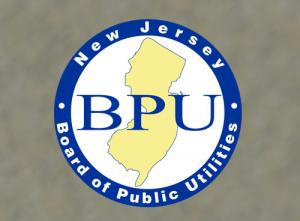Rate Case Roundup: New Jersey

In yet another rate case resolved by settlement, this one involving electric service, the New Jersey Board of Public Utilities (BPU) determined that the terms of the proposed agreement were both just and reasonable. Under the stipulation, the utility, Atlantic City Electric Company (ACE), may effectuate a rate increase of $45.85 million. While not an inconsequential amount, it is significantly less than the $74.8 million initially requested.
As is the case in so many rate proceedings, past and future infrastructure investments were the focus of the company's rate application. The utility claimed that in an effort to bolster reliability, it had embarked on a mammoth system improvement initiative in which it had built highervoltage transmission lines, replaced hundreds of utility poles, and upgraded hundreds of electric circuits.
According to ACE, such work was aimed at being able to rely on smart grid technology to minimize outages, prevent cascading system failures, and more quickly identify and prioritize customers in need for restoration when service disruptions do occur. The utility offered data showing that outage incidents have declined by more than 40% over the last six years while the response time to such outages has improved by 25% during that same time frame.
Building on that work, the utility reported that it also had constructed three new substations and added upgrades to four others. It informed the board that it has invested more than $715 million in such system improvements since 2011. The company also told the board that it wanted to recover such costs via a new system renewable recovery charge (SRRC). The SRRC proposal was met with some resistance, however.
After entering settlement negotiations, ACE relented and agreed to withdraw its SRRC proposal. It explained that inasmuch as BPU staff has undertaken a policy initiative that is expected to address rate treatment of significant infrastructure investments, and given that the stipulation reflects many additions to rate base, there was no longer as pressing a need for a special mechanism like the SRRC through which to assure its recoupment of its capital project costs.
In reviewing the proposed settlement, the board remarked that the parties appeared cognizant of ACE's history of customer service problems and of the necessity of exploring every option for ameliorating the level of customer complaints the utility receives annually. The board acknowledged that no utility should be the subject of more than 1,500 complaints each year as is ACE.
To that end, the board lauded the parties for including in the rate agreement a requirement that the utility participate in a working group for the purpose of developing a customer service improvement plan. In conjunction with a management audit being conducted by the BPU, the board said that the company should be able to get a firmer grip on the reasons behind its seeming inability to make headway in reducing the volume of complaints. At the same time, though, the board stated that it understood that the unusual and extreme weather events experienced in Southern New Jersey over the last several years, coupled with the region's ongoing economic challenges, are factors that contribute to recurring outages and lead to complaints but are occurrences over which the utility has virtually no control.
As to the stipulation's ROE terms, the board declared the 9.60% ROE set forth therein to be reasonable and appropriate. It added that that value was far more moderate than the 10.10% ROE first suggested by ACE. Re Atlantic City Electric Co., BPU Docket No. ER17030308, OAL Docket No. PUC 04989-2-17, Sept. 22, 2017 (N.J.B.P.U.).



